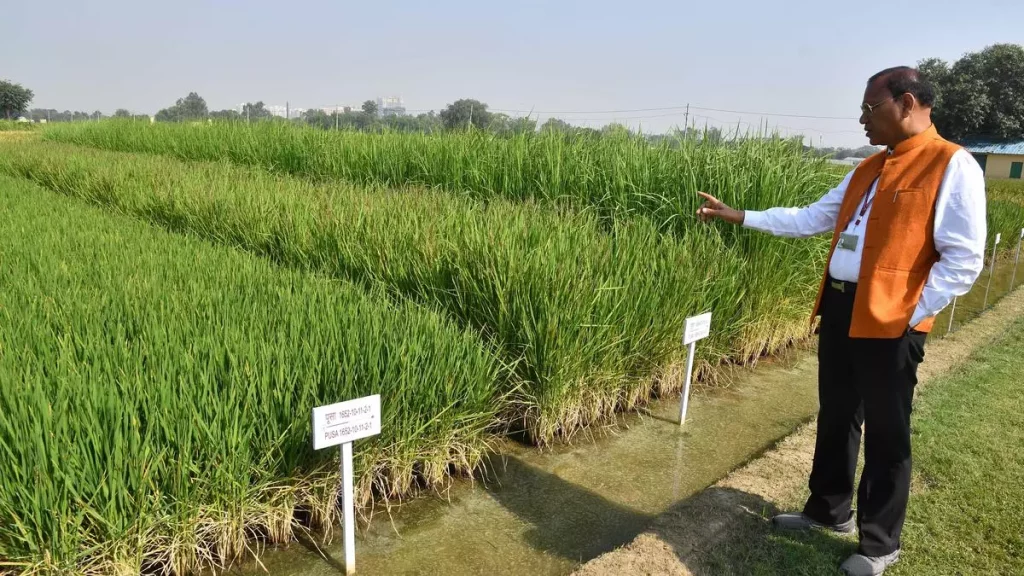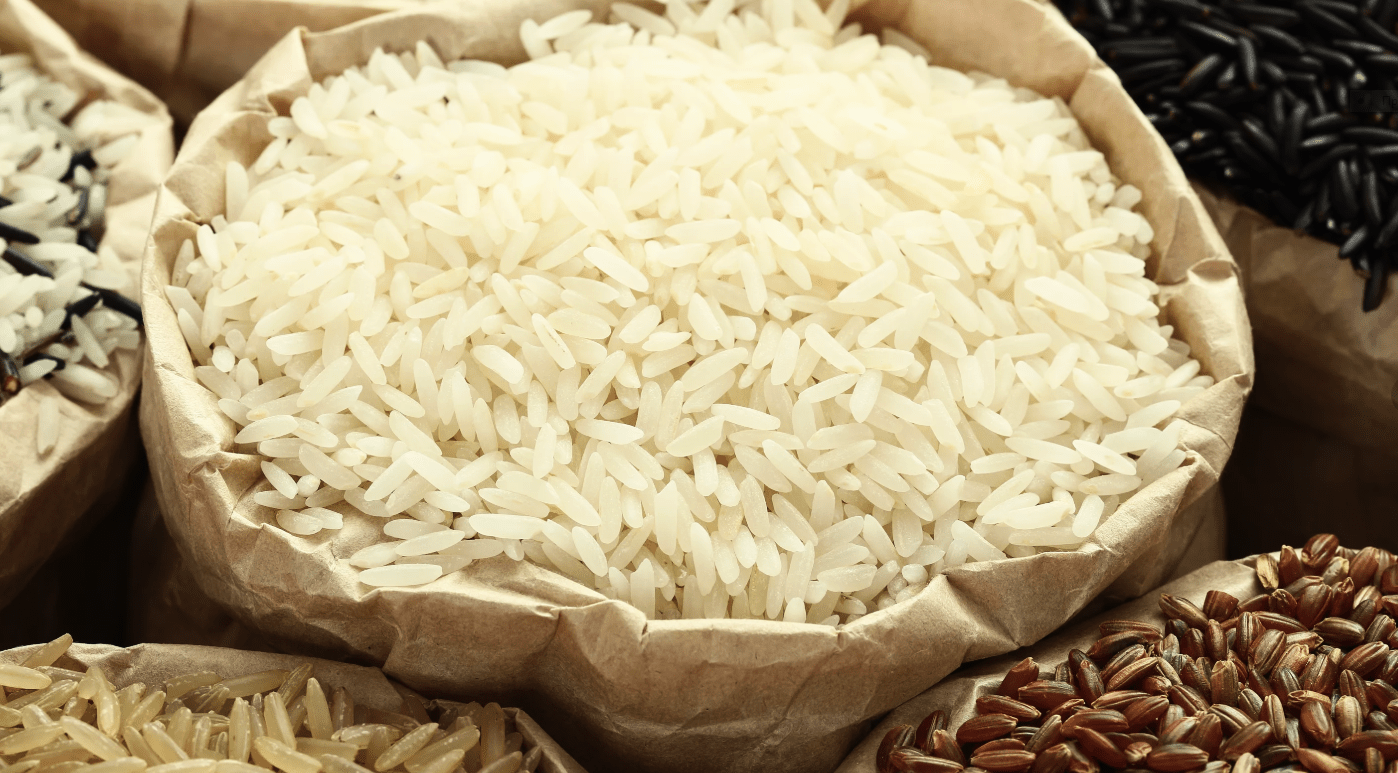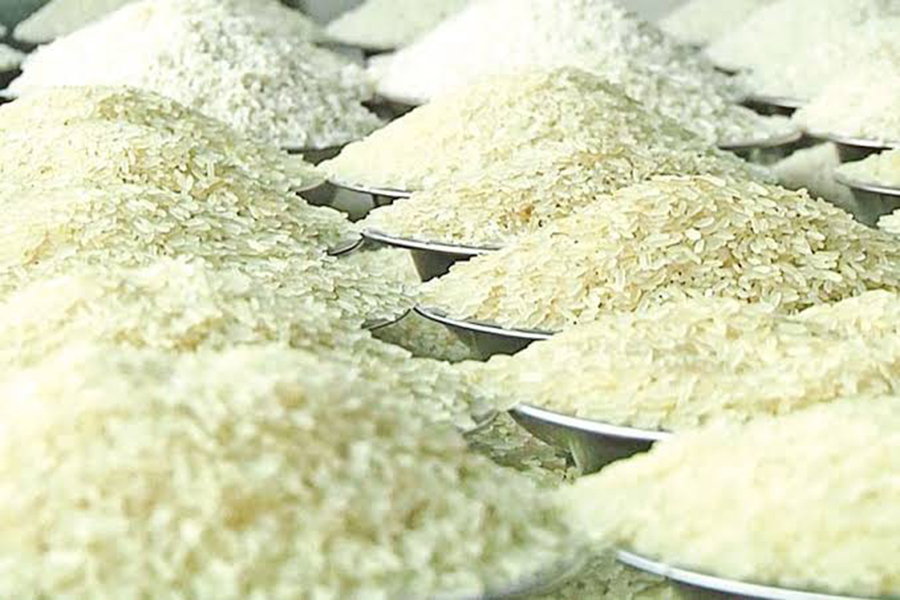Tags
Govt may allow export of Kalanamak rice, but curbs on other non-basmati to stay
However, the move may open floodgates for demands from across the country where premium rice varieties are grown.
BY PRABHUDATTA MISHRA

Dr. Ashok Kumar Singh, Director of Indian Agricultural Research Institute (IARI), stands near the dwarf variety of Kalanamak paddy at the field of Indian Agriculture Research Institute, in Pusa in New Delhi (File pic) | Photo Credit: SHIV KUMAR PUSHPAKAR
Kalanamak, a premium non-basmati rice variety grown in Uttar Pradesh, may be the first one to get an exemption from export ban. However, the move may lead to a slew of demand from across the country where premium rice varieties are grown. An inter-ministerial panel is reported to have approved the proposal of the Food Ministry on Monday and a notification is likely to be issued by March 15, sources said.
It is learnt that the government has decided to allow the shipments of Kalanamak rice through a port in Tamil Nadu after it is certified by the Uttar Pradesh government. However, there will be no distinction to be made between evolved varieties (dwarf plants) and traditional varieties (greater height of plant), sources said.
The issue was taken up by the Union Food Ministry after the Uttar Pradesh government sought an exemption amid the discontent among farmers of not getting good prices, the sources said. Uttar Pradesh government has assessed that 50 tonnes of the variety may be exported over the next few months if a decision is taken now to exempt Kalanamak, the sources said. In 2021-22, as much as 21 tonnes got exported, trade sources said.
Lord Buddha’s gift
Kalanamak, with a black husk and a strong fragrance, is considered a gift from Lord Buddha to the people of the Sravasti when he visited the region after enlightenment. The variety also has a Geographical Indication (GI) tag when grown in 11 districts of UP – Bahraich, Balrampur, Basti, Deoria, Gonda, Gorakhpur, Kushinagar, Maharajganj, Santkabirnagar, Shravasti and Siddharthnagar.
The government has released Pusa Narendra Kalanamak 1638 and Pusa Narendra Kalanamak 1652 varieties developed by Indian Agriculture Research Institute (IARI) in 2022.
Exports of both basmati and non-basmati have dropped by 27 per cent to 13.23 million tonnes (mt) during April-January of current fiscal from year-ago due to these curbs. The drop in non-basmati rice exports is even more steep, down by 37 per cent to 9.13 mt.
In order to ensure food security and keep prices under control, the Centre has taken various measures since September 2022. It first banned exports of broken rice and then imposed a 20 per cent duty on white rice. Last year, it banned exports of white rice and levied a 20 per cent export duty on parboiled rice and has fixed $950 a tonne as minimum export price for basmati shipments.
“When the export of non-basmati rice was banned in the year 2008, the government later exempted Sona Masoori, Ponni, Samba and Matta varieties from the curbs through an export quota. India’s rice policy was always formulated on the lines of basmati and non-basmati rice. As a result, most of the specialty rice varieties get diluted within the category of non-basmati rice,” said foreign trade policy expert S Chandrasekaran.
Cornerstone decision
If recognition to Kalanamak rice is made, it will be a cornerstone policy decision that will show that the government upholds other specialty varieties equivalent to basmati rice, he said.
In January 2024, the government came up with rules for Gobindabhog and Tulaipanji, which is a major policy shift to promote regional specialty rice varieties, Chandrasekaran said and added that the need of the hour is to abandon the usage of the term non-basmati rice and start using labels like specialty, aromatic, premium and common.
The agriculture Ministry has already notified grading and marketing rules for five premium non-basmati rice varieties of West Bengal – Gobindabhog, Tulaipanji, Kataribhog, Kalonunia and Radhunipagal.
https://www.thehindubusinessline.com/economy/agri-business/govt-may-allow-export-of-kalanamak-rice-but-curbs-on-other-non-basmati-to-stay/article67943266.ecePublished Date: March 12, 2024






